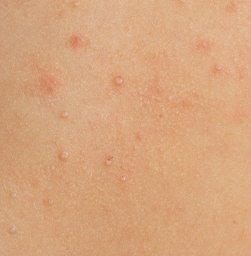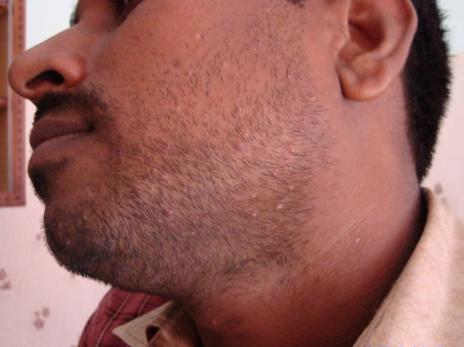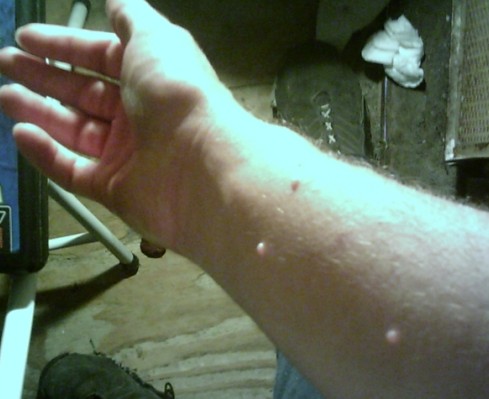
Many people have never heard of molluscum and have no idea what molluscum treatment options include. We’ll tell you about the skin condition known as molluscum, or molluscum contagiosum, which is caused by a virus in the pox family, and how it is commonly treated.
What is Molluscum?
It’s a viral infection of the skin caused by a virus in the pox family. That means it’s related to viruses like chickenpox and smallpox, but it’s much less serious than those viruses. According to the Centers for Disease Control and Prevention(1), cases of molluscum have been increasing since 1966 but because molluscum contagiosum infections are not closely monitored the way some other infectious diseases are, there are no accurate statistics showing exactly how many people get the virus. It’s more common in young people and in those with impaired immune systems, however.
Molluscum causes small, itchy bumps on the skin. The flesh-colored bumps are smaller than a pencil eraser but the affected area may become red and inflamed, especially if you scratch much (try not to scratch, though, because scratching can easily spread the infection and make matters worse). Here are some more pictures of the molluscum contagiosum.
Molluscum often clears up on its own without any treatment. However, people often want a molluscum cure for two reasons. First, the bumps can itch. They usually aren’t painful, but if you scratch them, they can become sore. They can also become infected if you scratch them. Second, molluscum is highly contagious. It also takes a long time to clear up on its own, as long as 12 months. People often prefer to get treatment so it goes away faster.

Medications For Molluscum Treatment
Medications for molluscum are usually topical medications that are applied directly to the bumps. They include:
- Irritating agents, like salicylic acid or potassium hydroxide, help dissolve the bumps. Sometimes they cause blistering, which lifts the bumps of the skin and then they fall off.
- Antiviral medications like imiquimod can also help clear up molluscum bumps, though they may take a while to work. They can also cause side effects including skin irritation, pain, and permanent discoloration of the skin. They also aren’t recommended for children under the age of 12, though children under the age of 12 are most likely to get molluscum.
Topical medications can be difficult to use if you have a lot of bumps. Imagine trying to apply medication to 30 or more bumps, while avoiding getting it on the surrounding skin!
Oral antiviral medications may also be prescribed in some cases. Oral medications can be easier to use than topical medications, but they carry a much greater risk of side effects.
Oral antibiotics may also be needed if the affected areas get infected due to excessive scratching.
Other Molluscum Treatment Options
Other methods of treating molluscum include:
- Scraping the bumps off (usually a local anesthetic is given first)
- Freezing the bumps off (called cryotherapy)
- Laser therapy can also be used to remove the bumps
These treatments are usually effective but may be painful, especially if you have a lot of bumps to be removed.

Top Recommended Molluscum Treatment
Our favorite treatment for molluscum is Naturasil. It’s made from natural plant extracts and is applied topically to the bumps. As with other topical treatments, it can be a bit tedious to use if you have many bumps because it must be applied to each one. Unlike most other topical treatments, though, Naturasil contains no potentially harmful chemicals so it’s much less likely to irritate your skin or have other side effects (although even the gentlest of natural treatments can occasionally cause side effects). We suggest checking with your pediatrician before using Naturasil on young children, even though the natural ingredients should be safe for children. To learn more about Naturasil and see if it might be a good choice for you, just follow the link to the company website.
Additional Reading:
Folliculitis or Molluscum – How to tell the difference between these two conditions. Comparison pictures and information.
Molluscum Home Remedies – What works and what does not. Comparison of home remedies to other treatments.
Recurring Molluscum – In rare cases, moluscum keeps coming back. Who gets recurring molluscum, what causes it, treatment, when to see your doctor.
Cimetidine Molluscum Treatment – Information about cimetidine; pros and cons of using it to treat molluscum.
